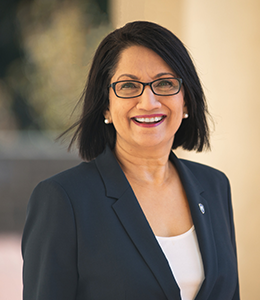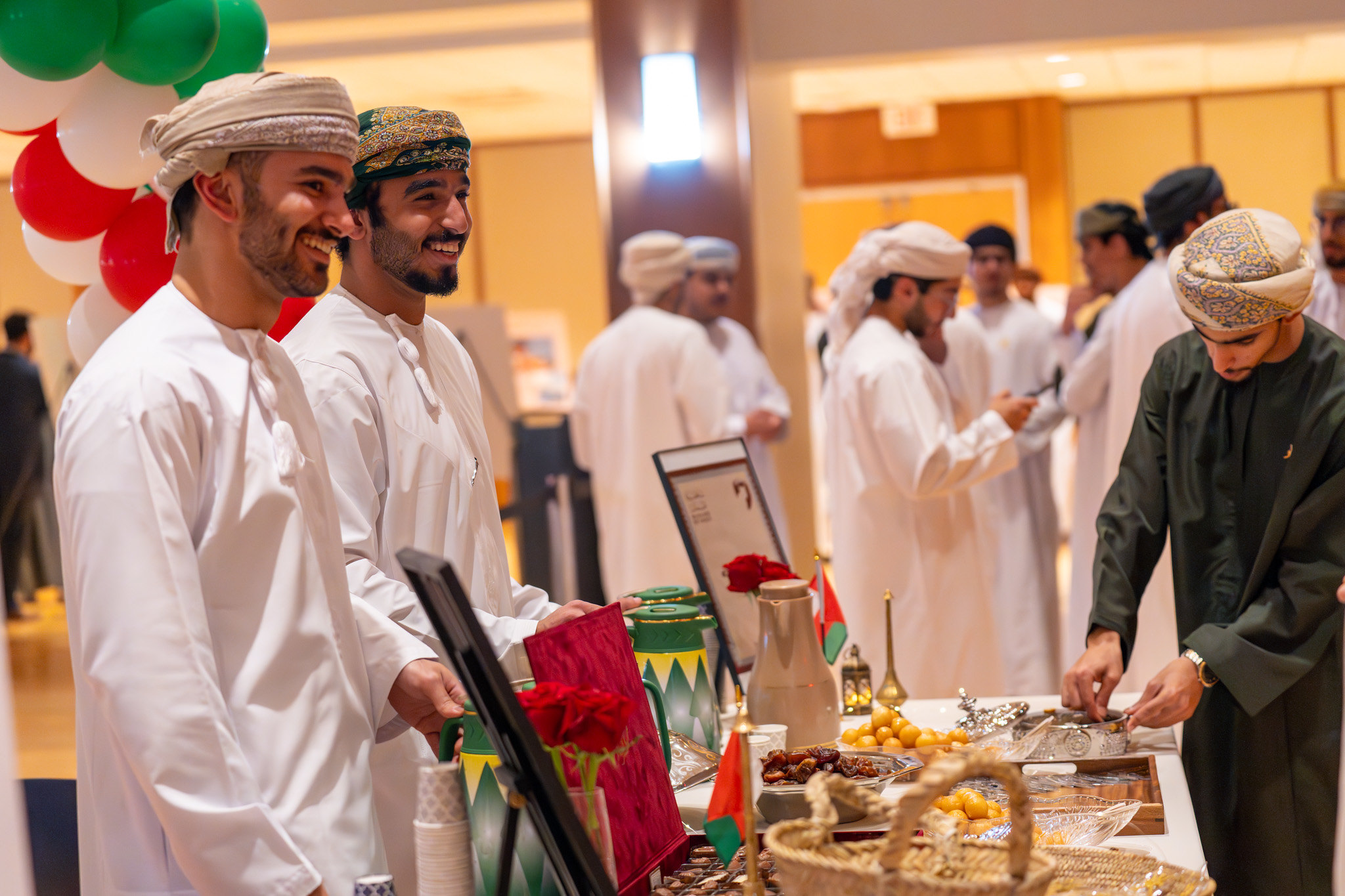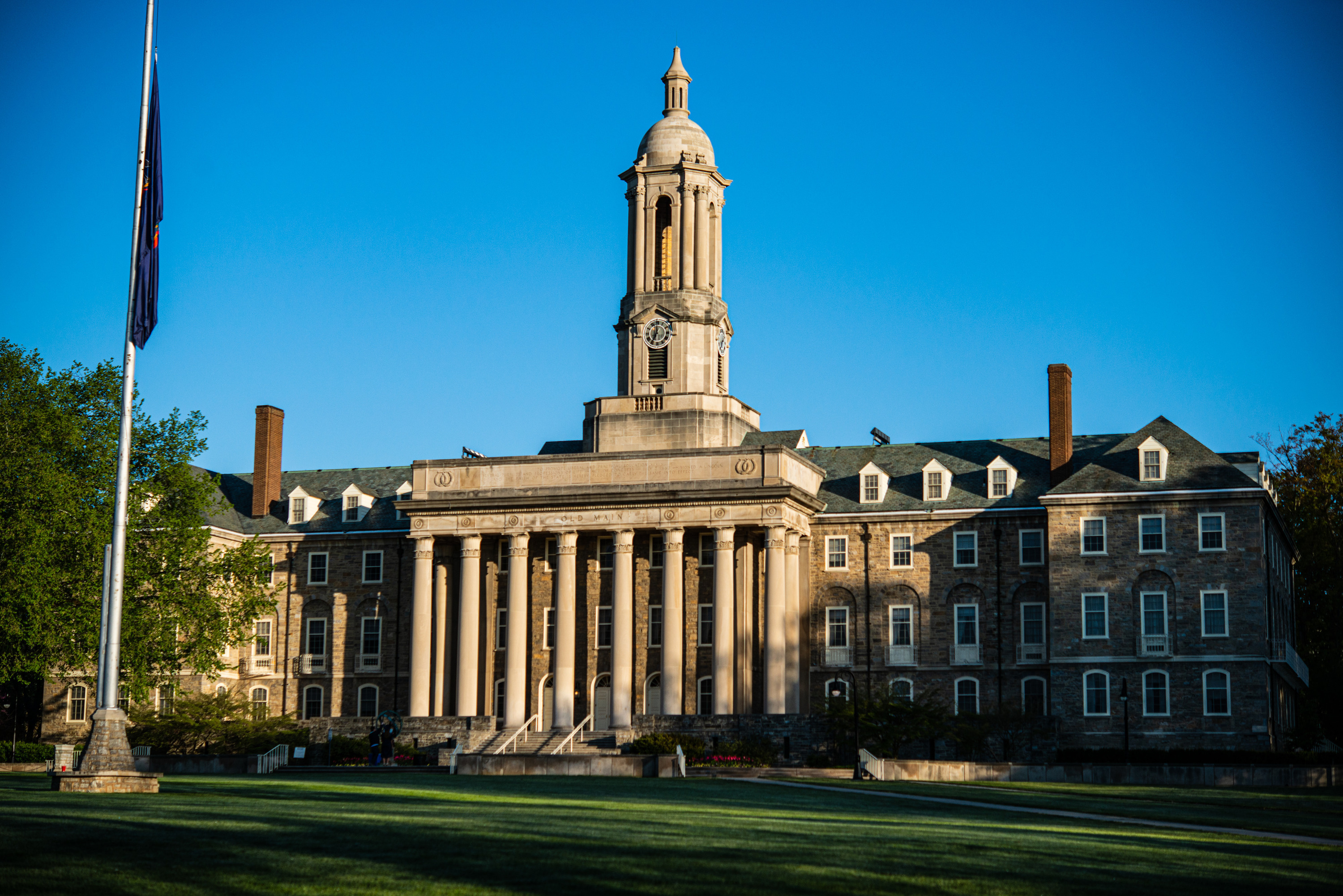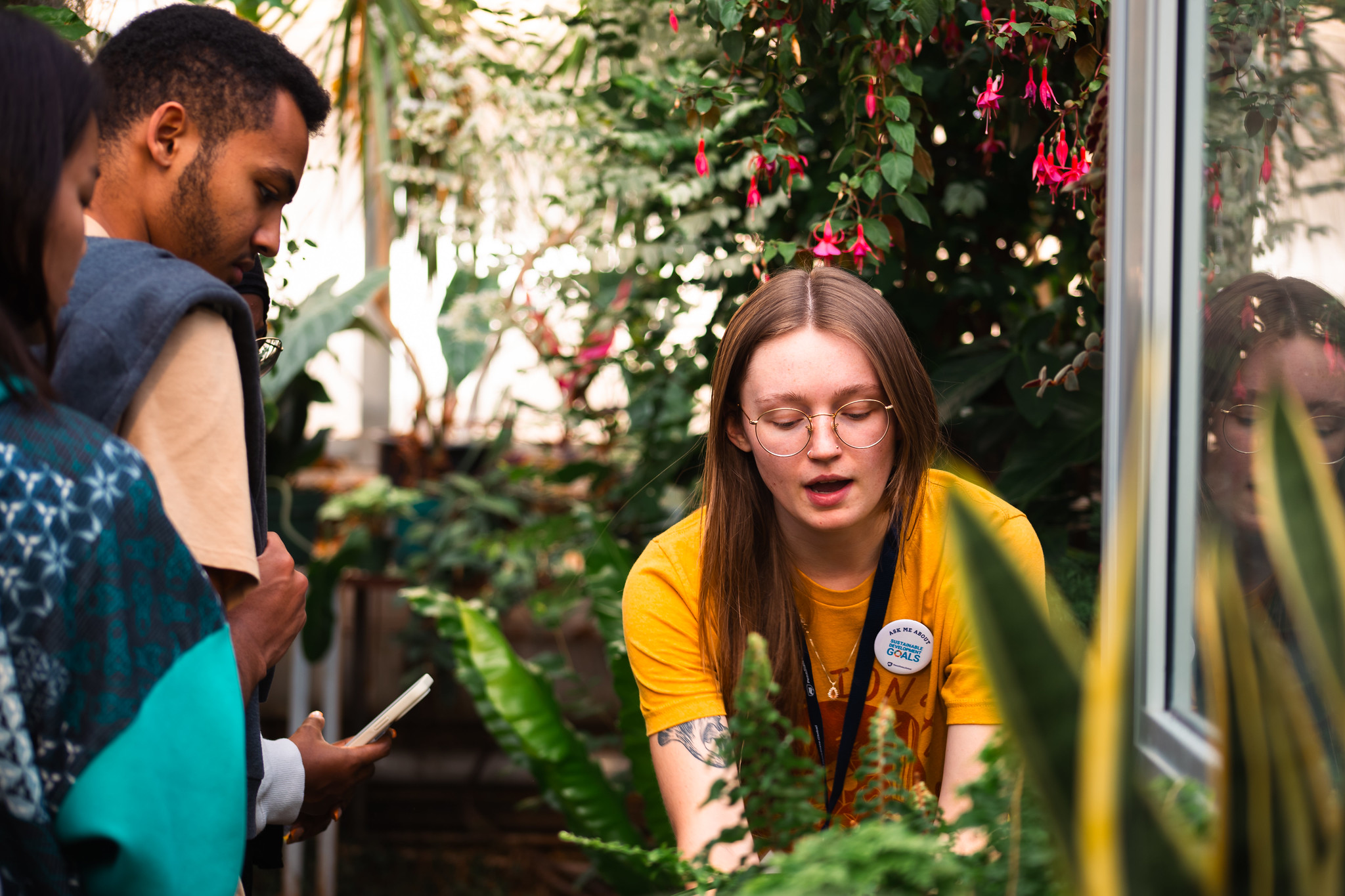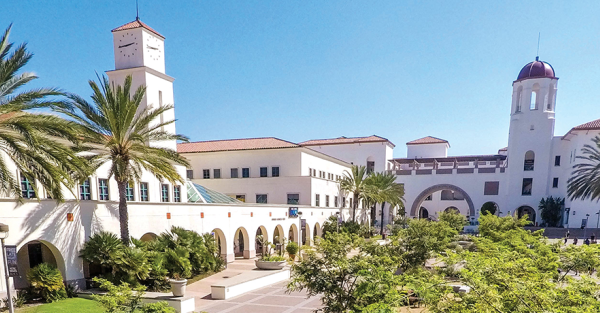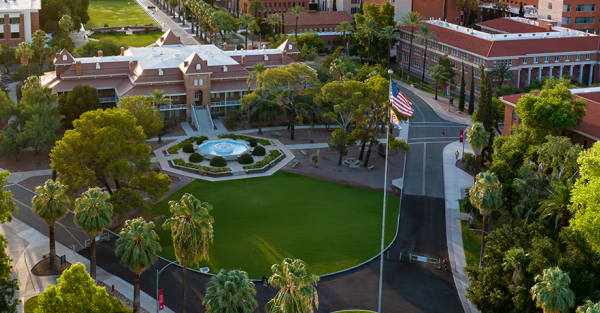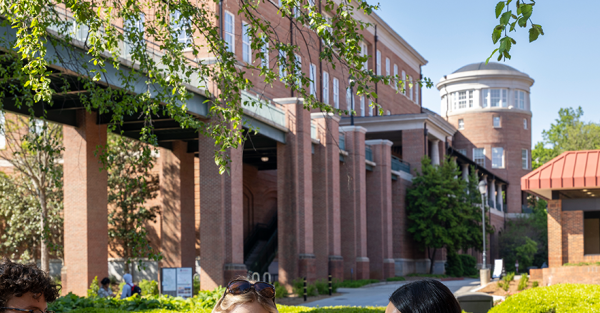Pennsylvania State University
The Pennsylvania State University, an R1 public research university, leverages its 24-campus network across the Commonwealth to scale global education for its nearly 88,000 students. Leveraging the benefit of senior leadership with international backgrounds and the development of a partnership strategy that currently spans 15 countries, Penn State Global demonstrates how land-grant institutions can utilize global connections to fulfill their public service mission.
The Pennsylvania State University’s (Penn State) senior leadership knows first-hand the importance of global engagement: President Neeli Bendapudi is a former international student from India, and the new provost, Fotis Sotiropoulos, came to Penn State as an international student from Greece.
“Internationalization is fundamental to everything that we do at Penn State,” explains Tracy Langkilde, former interim provost and current dean of the Eberly College of Science, herself a former international postdoc from South Africa. “We are a global leader in innovation and research. We pride ourselves in thinking about challenges that are both important to the Commonwealth and the globe.”
President Bendapudi’s appointment to the Association of American Universities Task Force on Expanding U.S.-India Partnerships by former U.S. President Joe Biden, for example, reflects the institution’s commitment to strategic global engagement at the highest levels. Penn State is a consistent top producer of Fulbright scholars. It is also one of the few universities in the country with two UNESCO chairs, one of which is now embedded within Penn State Global, the university’s central hub for advancing global engagement.
Penn State Global encompasses various subunits, including international student and scholar advising, global learning, global partnerships, global initiatives and operations, and global development and alumni relations. Rather than centralizing services and programs at Penn State’s University Park location, 11 of Penn State Global’s more than 85 staff members are strategically embedded across the university’s campuses. This approach helps the office promote global engagement within local contexts—a key to success in a diverse state where approximately 90 percent of the population lives within a 30-minute drive from one of Penn State’s educational hubs. “It’s truly meant to be one university,” says Sabine Klahr, vice provost for Penn State Global.
In 2023–24, more than 2,800 Penn State students had an experience abroad and almost 9,000 international students came to study across all campuses. The university’s comprehensive international student support, equity-focused programming, strategic partnerships, faculty development initiatives, and expanded global learning access has driven its impact across the Commonwealth.
Supporting International Students Across the Commonwealth
Penn State provides international students with comprehensive orientation and welcome programs coordinated across all campuses. Global engagement coordinators facilitate programming such as international student arrival and welcome events, international family orientation, and cultural celebrations like the “We Are the World” fair.
The university also has strong relationships with sponsor organizations in countries like Malaysia and Saudi Arabia; Penn State has hosted Aramco-sponsored students from Saudi Arabia since 1982, with about 600 students in total participating in the program, primarily in petroleum engineering, said Lee Kump, dean of the College of Earth and Mineral Sciences.
Penn State Global’s distributed staffing model is inclusive of international student support, with international student advisers embedded across campuses. Advisers handle immigration compliance, while global engagement coordinators provide programmatic support across multiple campuses to foster cocurricular activities for both international and domestic students.
“We very intentionally work to be very flexible and nimble with respect to the different needs of our different students, both U.S.-based and international, as well as the faculty and the staff that we support on the other campuses,” explains Jody Pritt, assistant vice provost for international student and scholar advising.
The university’s distributed model allows for campus-specific adaptations to meet the needs of local communities and students. At Penn State-Harrisburg, for example, the campus has cultivated long-standing relationships with local Chinese, Indian, and Korean communities, leveraging the diversity of its host city. These partnerships include welcome events, holiday celebrations, cultural festivals, and career shadowing opportunities that support international students while strengthening community ties.
Expanding Global Learning Through Equity-Focused Programming
Penn State has achieved measurable success in diversifying study abroad participation through targeted strategies, from outreach to underrepresented student populations and peer advising networks to scholarships and specialized programs.
Penn State Global’s education abroad program established a diversity, equity, inclusion, and belonging committee and appointed an outreach coordinator who provided consistent messaging and relationship-building with student organizations and academic departments serving diverse populations.
To help diversify participation in international programming, Penn State Global expanded outreach for study abroad scholarships which helped reach students from various populations including first-generation, Pell Grant–eligible, and students with documented disabilities. It also expanded its peer advising network by recruiting current students from underrepresented backgrounds to serve as program ambassadors during orientation sessions and education abroad recruitment events.
We wanted to lift up opportunities for all students, both international and domestic, to engage in global learning together; and to do that in ways that go beyond study abroad. —Assistant Vice Provost for Global Learning Brian Brubaker
Other initiatives include the Perreault Fellows Program, launched in 2019, which offers a comprehensive multi-year leadership and ethics curriculum, including subsidized summer internships abroad, to select students from underrepresented backgrounds. Penn State has also created specialized programs like the College of Agricultural Science’s faculty-led program in Costa Rica that is specifically designed for first-generation students.
These combined strategies resulted in a 22 percent increase in underrepresented student participation from the 2017–18 to the 2018–19 academic years and a 20 percent increase in first-generation student participation post-pandemic. This past year, Penn State also saw a 100 percent increase in awards for the Benjamin A. Gilman International Scholarship (Gilman).
Beyond education abroad, the university is investing resources in expanding its support for the Experiential Digital Global Engagement (EDGE) initiative, Penn State’s version of Collaborative Online International Learning. It also equips faculty with tools and skill sets to embed global learning pedagogy into their courses through the Global Learning Faculty Fellows Program. “We wanted to lift up opportunities for all students, both international and domestic, to engage in global learning together; and to do that in ways that go beyond study abroad,” says Brian Brubaker, assistant vice provost for global learning.
A Strategic Approach
Penn State’s targeted approach extends to its international partnerships. The university has developed a comprehensive partnership strategy that identifies and manages a small number of strategic partnerships worldwide. These partnerships, supported by Penn State Global, evolved from research collaborations and were selected using established criteria, including institutional alignment, similarity in academic programs, and potential for collaboration across education, research, and outreach. Regional specialists manage all partnership activities, allowing Penn State to deepen relationships and demonstrate the measurable impact of these partnerships.
The university’s partnership with Monash University (Monash) in Melbourne, Australia, exemplifies this approach. Beyond traditional academic exchanges, the partnership includes virtual and global staff exchanges, joint-research projects that honors college students participate in, and three rounds of jointly funded seed collaborations which have yielded over $10 million in grant funding.
Additionally, library collaborations between Monash and Penn State have led to innovative initiatives like the Great Rare Books Bake Off, a social media competition that engaged both university libraries in exploring their special collections by focusing on regional, period-appropriate recipes. This and similar initiatives are spearheaded by Mark Mattson, the university’s global engagement and international partnerships librarian—a unique position within any library system.
Campus-level partnerships complement system-wide efforts. Penn State-Lehigh Valley, for example, developed partnerships with Rajkiya Kanya Mahavidyalaya (RKMV) and Gautam Group of Colleges (GGC) in India. These partnerships include virtual exchanges through the EDGE program, showing how individual campuses can develop their own international relationships within the broader strategic framework. Similarly, Penn State-Harrisburg nurtures an exchange with the Technical University of Darmstadt in Germany; the relationship encompasses not only a traditional exchange, but co-curricular collaboration around projects like the Concrete Canoe Regatta.
Fostering Internationalization Through Faculty Development
EDGE is an example of a specific outcome from Penn State’s approach to faculty professional development. Since 2018, more than 60 faculty members across Penn State’s campuses have implemented virtual exchange projects. These efforts have resulted in partnerships spanning 64 institutions in over 40 countries and have impacted more than 1,900 Penn State students and over 2,700 international students from partner institutions.
EDGE serves as one of three specialized tracks within Penn State’s Provost Endorsement Program for faculty development. Another track, the Global Learning Faculty Fellows Program, selects 20 faculty members annually for intensive professional development focused on curriculum internationalization broadly. A third track focused on best practices in leading study abroad programs is under development.
To broaden access for faculty across all campuses, Penn State launched an online global learning training module. All participants receive provost endorsements, which provide formal recognition during annual review and promotion processes. This recognition system addresses a key challenge in faculty development by making international work visible and valued institutionally.
Academic units on campus also incentivize faculty to engage globally. The College of Earth and Mineral Sciences, for instance, gives international travel awards and pays all expenses for its faculty leading study abroad programs. The Center for Global Engineering Engagement provides professional development specifically for engineering faculty to internationalize curricula. Additionally, the College of Agricultural Sciences supported the creation of the Global Teach Ag Network, which now includes over 1,500 community members in 61 countries and connects global experts with educators worldwide.
Looking Ahead
New Provost Fotis Sotiropoulos will join the university as it embarks on a new strategic planning cycle. This leadership transition provides an opportunity to build on current internationalization efforts while concurrently developing a shared vision for future growth. Key priorities include developing international alumni relations more fully, scaling successful programming across the university, and fully integrating global engagement into the university’s strategic plan, Klahr says.
The university is also developing new initiatives across its campus network, including the Abington Experience, a new initiative at the Penn State-Abington campus. The program will leverage existing assets to create a pathway for student success and leadership skill building. Embedded at the center of this new program will be short-term, experiential off-campus academic programs. These high-impact experiences will be subsidized with funding from Penn State-Abington Chancellor Gary Liguori’s office so that they are accessible to students from all backgrounds. This amplifies Penn State’s ongoing commitment to making global experiences accessible across all campuses and student populations.
“We sincerely believe in the mission at hand, that we are here for the citizenry of Pennsylvania,” says Pritt. “We’re always looking at the work we do and saying, ‘how does this impact the Commonwealth?’”
Lessons Learned
Create Personalized Support Programs That Enhance International Student Belonging.
A few years ago, Penn State launched a program that assigned dedicated librarians to support international students. "The idea is that students might feel more comfortable when they know their assigned personal librarian understands that things work differently in different parts of the world," explains Mark Mattson, global engagement and international partnerships librarian.
Removing Financial Barriers to Study Abroad Directly Impacts Participation in Education Abroad.
Penn State Global implemented Gilman scholarship guarantees by providing additional funding even when students didn't receive federal awards. Because students applying for Gilman scholarships must demonstrate a high level of financial need, this scholarship guarantee encouraged more underrepresented students to apply for these prestigious awards. The initiative increased both the number of applications and awardees, says Brian Brubaker, assistant vice provost for global learning. This initiative, coupled with intentional investment in marketing materials and strategic outreach focused on underrepresented students, has resulted in broader access to education abroad.

